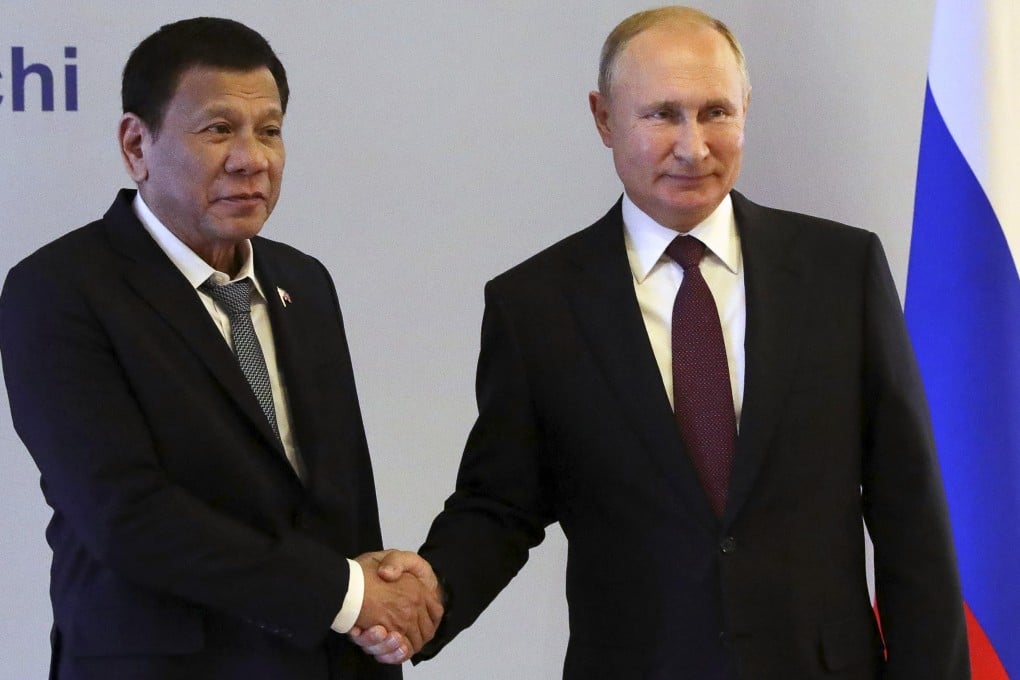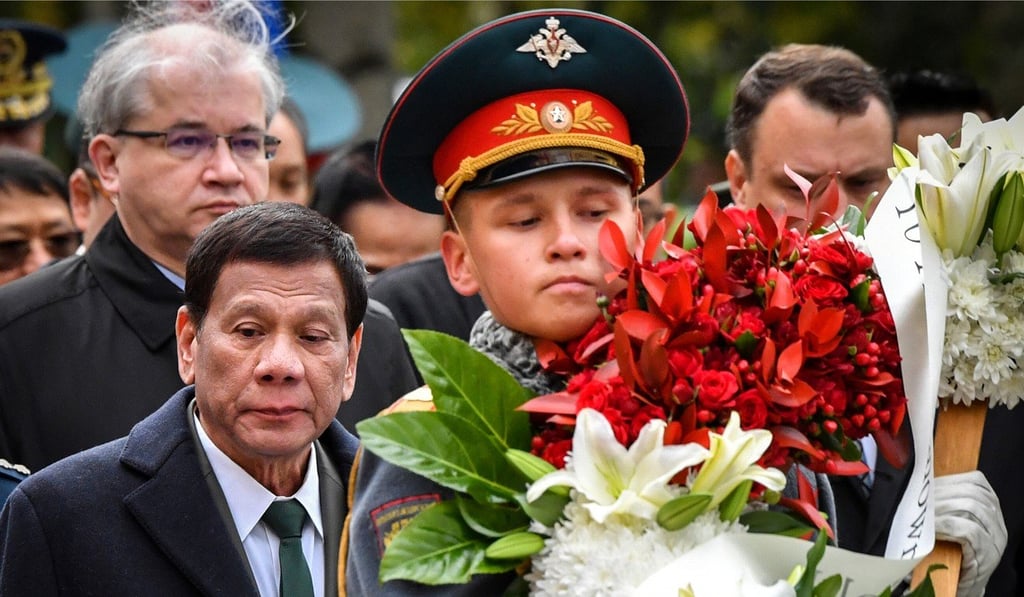Advertisement
Opinion | Can Duterte expand horizons of Philippine diplomacy and keep his Washington and Moscow plates spinning?
- Richard Heydarian writes that Philippine president is shrewdly courting major powers to his country’s advantage amid warm words from the Kremlin
Reading Time:4 minutes
Why you can trust SCMP

“Sovereign democracy”, Russian propagandist Vladislav Surkov wrote, refers to a system whereby a “society’s political life … the political powers, their authorities and decisions are decided and controlled by … the people that formed it”.
According to the long-time adviser of Russian President Vladimir Putin, a society is democratic in so far as it is insulated from external influence, especially Western interference. Meanwhile, Ivan Ilyin, Putin’s favourite philosopher, endorsed a saviour-leader who deploys “redemptive excess” and “patriotic arbitrariness” to advance national development.
Putin’s politics have attracted admirers from across the world, including Western leaders such as US President Donald Trump and Hungarian Prime Minister Viktor Orban. But perhaps there is no more enthusiastic political disciple than Philippine President Rodrigo Duterte, a notorious authoritarian populist.
Advertisement
Referring to Putin as his “favourite hero”, the Southeast Asian leader broke the ice in relations between the two countries by becoming the first Philippine president to visit Russia in recent memory.

Advertisement
Blossoming relations, however, transcend personal rapport and fascination, with potentially huge consequences for Asian geopolitics.
Advertisement
Select Voice
Choose your listening speed
Get through articles 2x faster
1.25x
250 WPM
Slow
Average
Fast
1.25x
